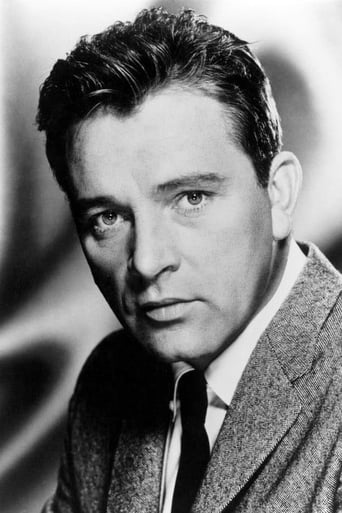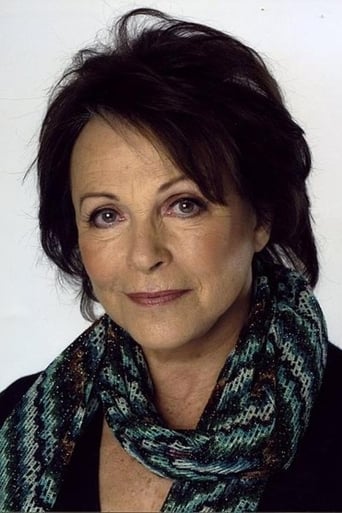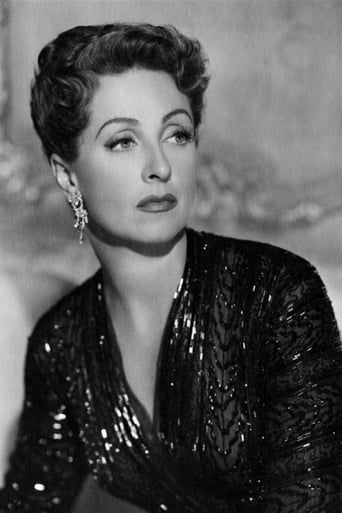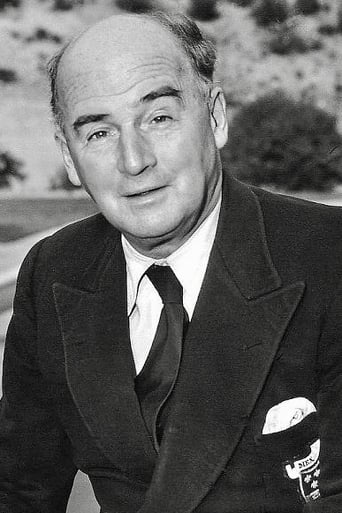BallWubba
Wow! What a bizarre film! Unfortunately the few funny moments there were were quite overshadowed by it's completely weird and random vibe throughout.
Hulkeasexo
it is the rare 'crazy' movie that actually has something to say.
Teddie Blake
The movie turns out to be a little better than the average. Starting from a romantic formula often seen in the cinema, it ends in the most predictable (and somewhat bland) way.
Nayan Gough
A great movie, one of the best of this year. There was a bit of confusion at one point in the plot, but nothing serious.
jubilee77
Throughout his rather short life (33 years quite short for its time), Alexander the Great conquered much of the Middle East and a TV programme titled "In the Footsteps of Alexander the Great" by Michael Wood would provide a fascinating but complex insight and on whether one would consider him to be a hero or villain and even two films have been made and it may even explain why these have been so-sos.On the 1955 film starring Richard Burton, this one was a bit dreary and the likeliest reason for its failure was due to the inability of screenwriter, producer and director Robert Rossen to hold the story together and it sometimes became known as "Alexander the Bore" and Burton may have been miscast as the Greek warrior but the plus side of Burton playing Alexander was his remarkable voice and the fact is that it looked to be that Burton played Alexander the Great in a similar fashion as he did when starring as Marcellus in The Robe. The Oliver Stone version that was premiered in 2004 looked to be more promising but it's not necessarily better and had also been heavily criticised for a number of reasons. Therefore, the complicated history of a warrior whom conquered the middle east 2.300 years ago may explain the reason for the failure of those two films.
Daniel Kincaid
"Alexander the Great" not surprisingly attempts to portray the life of Alexander the Great. On the surface it seems as though it should be excellent considering that the cast is led by two prolific actors, Richard Burton and Fredric March as Alexander and his father Philip respectively. The film also features elegant costumes and lavish sets laden with depictions of ancient art and architecture. However, all of these attributes disappointingly don't prevent the film from being extremely tedious.The film starts with Alexander's earlier life in Macedon and is mostly focused on portraying antagonisms between Alexander and Philip and the relationship of Alexander's mother to both. Richard Burton and Fredric March have some fine moments, but for the most part their dialogue is uninteresting, which makes the film mostly dull since most of the scenes in the film show lengthy discourses. There are jokes added as well that are often followed by a number laughing, but the humor is mostly stale. There is one amusing point where Philip suggests that Alexander should wait until he is dead before naming a city after himself, but this represents an exception rather than the norm. Barry Jones did give an enjoyable performance as Aristotle, although he is only a marginal element in the film.During this first phase of the film the Battle of Chaeronea of is also portrayed, where forces led by Philip and Alexander defeated a combined Athenian and Theban force in order to unite Greece under Macedonian rule. The battle, despite having an array of extras in it, is handled clumsily. It starts with brief shots of infantry and cavalry crossing a stream and then fighting out of formation. Then the focused is placed on Philip fighting one-on-one and Alexander charging in after him. This portrayal seems to bear little to no resemblance to the actual battle of history, is short in duration and not particularly exciting.Shortly after half way through the film, Philip dies and the film moves to a portrayal of Alexander's military exploits in Persia. It is in this stage we are introduced to Memnon, a Greek fighting with the Persians. Peter Cushing gives a strong performance as Memnon armed with sharp lines, making his the top performance of the film though the character is seen in relatively few scenes. Harry Andrews is also notable as the Persian emperor Darius, though Darius is never made particularly interesting in the context of an opponent to Alexander. However, the scene representing the correspondence between Darius and Alexander showing the "clash of egos" was well-done.Most of this phase of the film is a rotation between short battle scenes and more mostly dull dialogue with some rare decent scenes. The Battle of the Granicus is shown basically as a brief cavalry charge. The treatment of Granicus is better than the treatment of Chaeronea, but not much better. There is another final battle between Alexander and Darius, presumably intended to represent the Battle of Gaugamela. The battle starts with a Perisan chariot charge and seems as though it will be interesting, but it quickly culminates in a brief uninteresting cavalry charge as well. The main problem with these battle scenes is that they fail to give a sense of Alexander's military genius. It seems as though he just accumulated territory through a series of brief heroic cavalry charges and the film never represents the tactics used in any of the battles. These are also a series of brief and unnecessary battle clips overlapped by a map of Persia to represent the conquests not shown in "fuller" battles. After Alexander's conquests, the film ends poorly with an uninteresting "harmony and unity" speech from Alexander for Greeks and Persians. "Alexander the Great" is a colossal bore, and I strongly recommend avoiding it.
theowinthrop
Robert Rossen is one of the directors whose career was going well when the blacklist hit, and he found himself in a tailspin. After "Johnny O'Clock", "Body And Soul", and "All The King's Men" Rossen seemed headed for major directing work. Then came the blacklist. In the years of Senator McCarthy Rossen did two projects, "The Brave Bulls" and "Alexander The Great". Then he began regaining his stride with "They Came To Cordura" and finally the film we really recall him for: "The Hustler". But he left a relatively small body of movies, and we can only marvel at the less than ten titles it includes.This was (unless you count the fictional "They Came To Cordura") the only history film in his work, and it was done in Europe. In fact, of the leads, only one (Fredric March) is American. It is (like all Rossen's work) impressive to look at - he was a master at composition of figures on the screen. Look at the sequence of the assassination of Philip of Macedon. Philip leaves a crowd that remains on the outskirts and ascends steps to a temple. A figure darts out and attacks and kills him. The fate of the character (although there has been a morbidity about Philip since the film began) is re-enforced by the way death seems to reach out an knock him down. As I said, the film is very impressive to see.I stress this last scene of March's because his Philip has more going for him in the movie than it's erstwhile central figure. Alexander was his father's rival (egged on by his mother as Richard the Lion Hearted is egged on by his mother in "The Lion In Winter"). But Philip is more of a superstitious type than Henry II of England. He is aware that his son is needed as an heir to complete Philip's dream (uniting the Greek state under Macedonian sovereignty into a single power). But he is aware that the signs suggest his heir is going to be his great rival and destroyer (like the Greek Gods led by Zeus overthrew their father Chronus). March's wife, the clever and deadly Olympias (Danielle Darrieux) knows how to push March's buttons about his fears, and March finally does what Henry II threatens to do - divorce his wife and marry again - and breed new "better" sons. It seals his death warrant - Olympias will not tolerate a rival on Philip's throne.March therefore has a more interesting role than (curiously) Burton as Alexander. I know that sounds strange, but March's personal turmoil is much more interesting to consider and watch. Historically, Philip is frequently overlooked because of his son's stunning military achievements against Persia, and his empire building, but Philip actually was a clever monarch. Interestingly enough, while Alexander's body was eventually buried in a beautiful tomb in Alexandria, Egypt, the tomb has not been found by archaeologists. But twenty years ago Philip's remains were found in Macedonia. Philip, in a sense, has survived his son.After March leaves the scene, Burton becomes the center of attention - his role in taking over Greece rapidly replaced by his role in bringing down the old Persian Empire of Cyrus, Darius I, and Xerxes (see "The Three Hundred Spartans"). Possibly too much is by-passed - the heroic attempts of the last great democrat of Athens, Demosthenes (Michael Hordern), to stop this juggernaut threatening Greeks's city states, is seen too quickly. The confrontation with Darius III (Harry Andrews) is handled too quickly too - not quite the monarch his ancestors who invaded Greece were, his defeat and death are tragic and deserving of deeper plumbing. Rossen decides to concentrate on Alexander and his role of building that empire that stretched from the Nile to the Ganges - one of history's most astounding military achievements. Certain quasi-legendary events are shown - the cutting of the "Gordian Knot" for example. The corrupting influence of the growth of Alexander's power is shown too, up to his premature death. He was an "aged" 33 when he left the scene.What would he have done if he lived into old age? Would he have noticed on the western boundaries of his empire those two peculiar states, Carthage and Rome? His relations with the Jews in Jerusalem and the Holy Land were quite good (for a change the Jews realized it would make sense not to fight such a powerful invader - in fact to this day Jewish families live up to an agreement with the Greeks to allow their sons, occasionally, to bear the name of "Alexander", the one non-Jewish name allowed). Would Alexander have used Greek culture to unify the entire ancient world? Or would the relative decadence of the Persian world have undermined his plans? A ten year reign some twenty three hundred years ago that is still remembered, is astounding. But where would it have ended?
jamesvaleri
Great Quote: At Troy, Achilles found his Hector and he killed him. Who will be my Hector? TO THE GOD OF BATTLES! I thought the 1956 was long and boring but compared to the Stone version, it deserves 10 Stars! Oliver Stone has lost it, has he realized yet that he can succeed in 20th Century topics (JFK, Platoon and Wall Street)!!! Although Oliver Stone botched his attempt at Alexander, I do believe that there will someday be a great Alexander the Great film. It will probably be another 50 years before it is tried again. Oh, well! The story has been around for over 2,300 years. What is another 50 years. I just hope the next one works!









